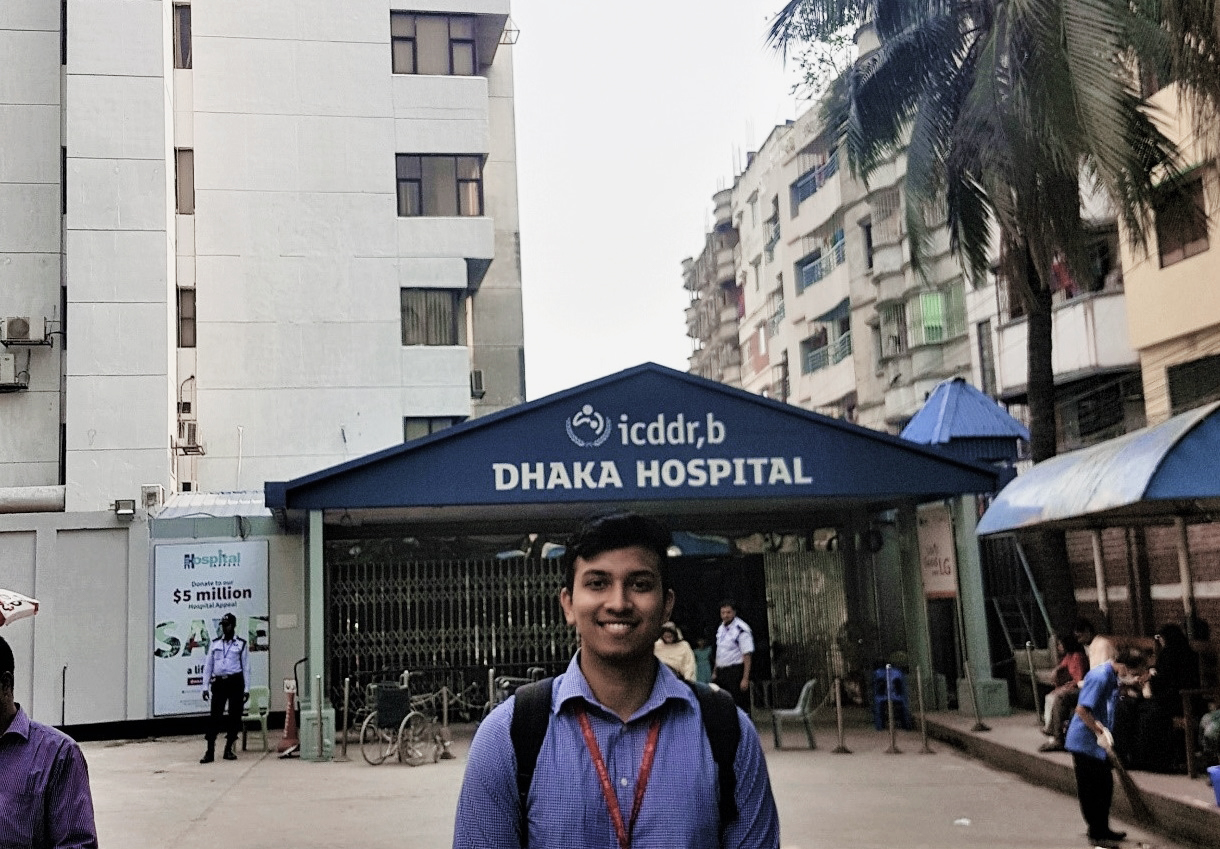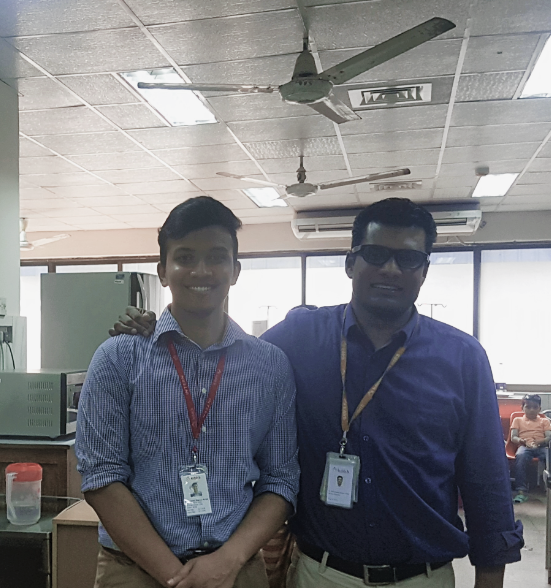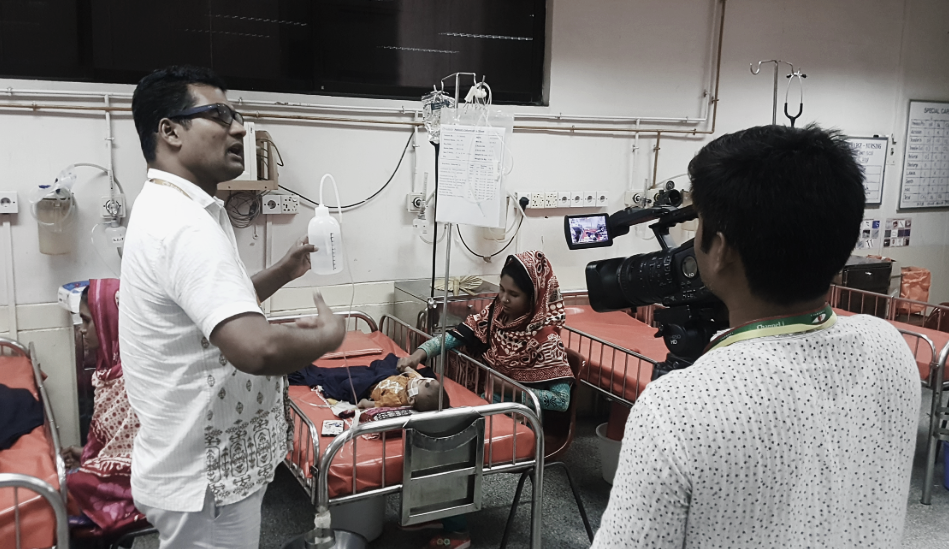Future Focus: Riashad Monjur
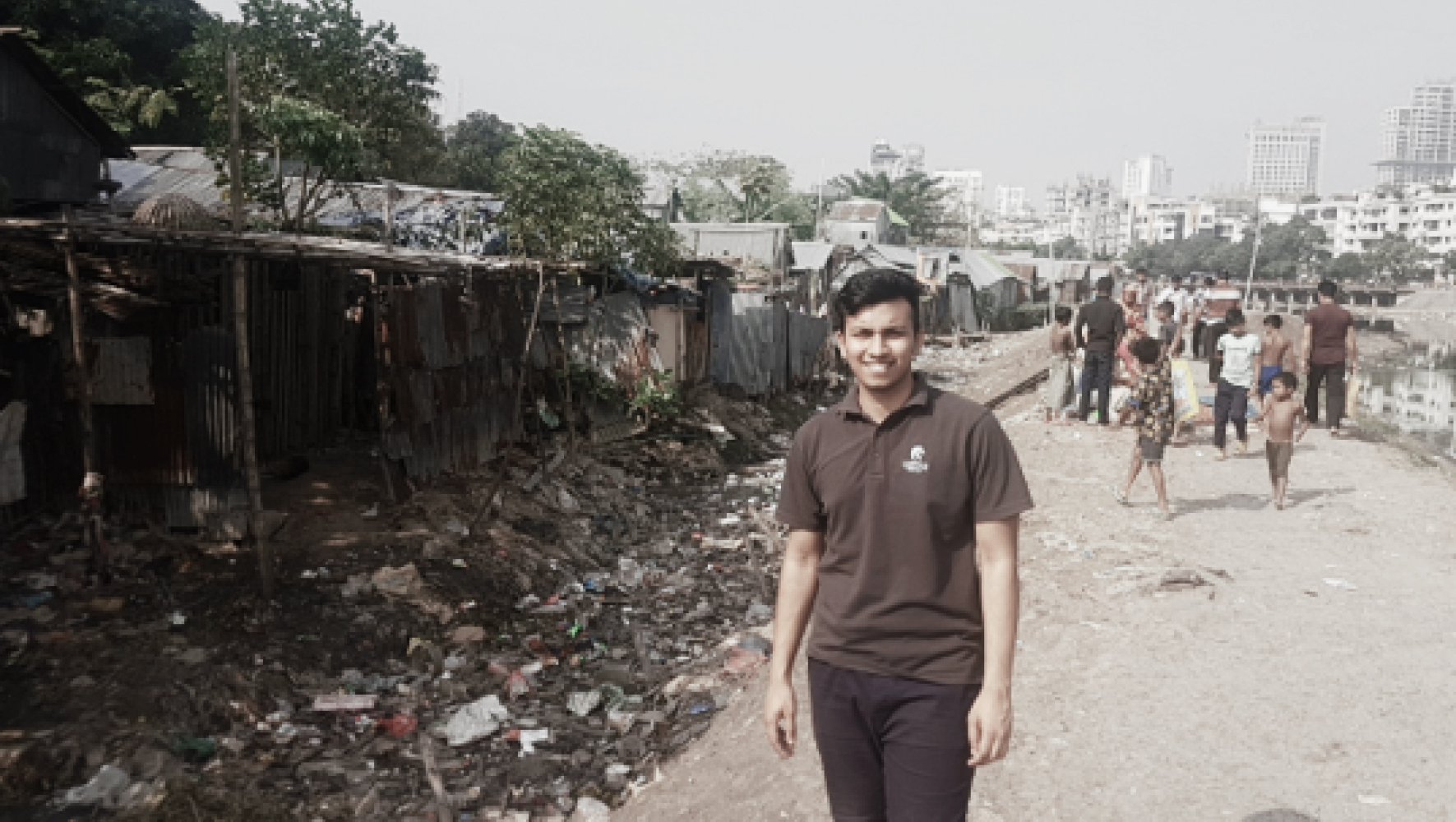
Riashad Monjur, a third year medical student from the University of Newcastle, was one of the five recipients of our FutureFocus grant for 2018.
Riashad travelled to Dhaka, Bangladesh to undertake his ‘Health Equity Selective’ placement at the International Centre for Diarrhoeal Disease Research, Bangladesh (icddr,b), located in the busy Mohakhali area and close to some of the largest urban slums in Dhaka.
Riashad’s six week journey was no easy feat. During his time, he was able to expand his learning through
first-hand experience in dealing with some of the region’s
most complex public health challenges.
Read a full account of Riashad incredible journey below!
Choosing Dhaka, Bangladesh as an elective destination
Riashad has long held an interest in the public health challenges that have risen from the rapid and unplanned migration into the most densely populated city in the world, Dhaka, Bangladesh. This unplanned migration has resulted in the rise of the ‘urban poor’ population (women, men and children who are either homeless or slum dwellers), who are particularly disadvantaged as in addition to being socially excluded from the rest of the city, they earn little to no income, have minimal education and health literacy, and they live in housing environments that are breeding grounds for potentially fatal infectious diseases. For instance, while diarrhoeal diseases may only be an inconvenience for us in Australia, they can pose a significant threat to children living in the slums through severe malnourishment and even death.
Riashad chose the International Centre for Diarrhoeal Disease Research, Bangladesh (icddr,b), an NGO, as his placement as it treats all patients free of charge (including food and medications) and is located within a kilometre of the largest slum in Dhaka with over 250,000 people, the Korail Slum. This meant that it was ideally set up to look after some of the most vulnerable people in Dhaka and by extension, the world. Prior to this placement, Riashad did not have a face or identity of the people who lived in Dhaka’s slums but now knows they are the rickshaw pullers, bus drivers, the factory garment workers and house helps.
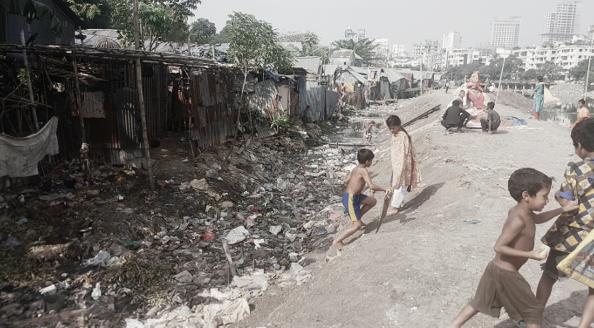
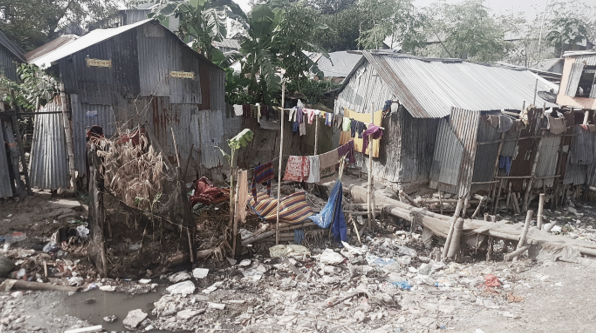
Riashad's experience
Riashad’s four weeks at the Dhaka Hospital of the icddr,b was in his words "nothing short of incredible". During his time, he not only gained an appreciation of the inequitable impact of one’s income, education and socioeconomic status on their health but also saw firsthand the incredible work the doctors and nurses do to help hundreds of patients who cannot afford to go anywhere else.
Riashad was particularly excited about being placed in the ICU, led by Dr. Jobayer Chisti – one of Riashad’s biggest inspirations and one of the reasons he chose to study medicine after reading about his internationally renowned work using shampoo bottles to help children with pneumonia breathe (bubble CPAP).
Riashad recalls the process of a patient coming in and out of icddr,b as exceptionally systematic and efficient. “The hospital was divided into three clinical units – the ICU, long stay unit and short stay unit with clear pathways for each patient. Despite this though, there were several mornings where I walked into the building to find even the hallways filled with patients on temporary beds.”
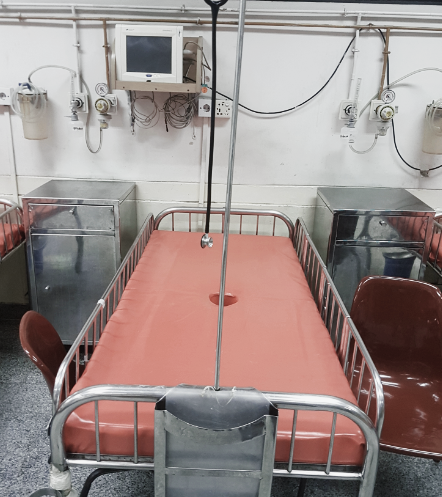
The ICU at the icddr,b has six paediatric beds and three adult beds. “Given the focus on diarrhoeal diseases, these beds were designed with a hole in the middle to allow accurate monitoring of the patient’s fluid loss and subsequent administration of vital fluids to avoid dehydration,” Riashad explains.
While the ICU is different from those in Australia, Riashad was impressed by the incredible service being provided to patients in what he describes as ‘an extremely under-resourced environment’. “There were multiple days where finding a working paediatric blood pressure cuff was problematic and needed to be shared across multiple departments,” he says.
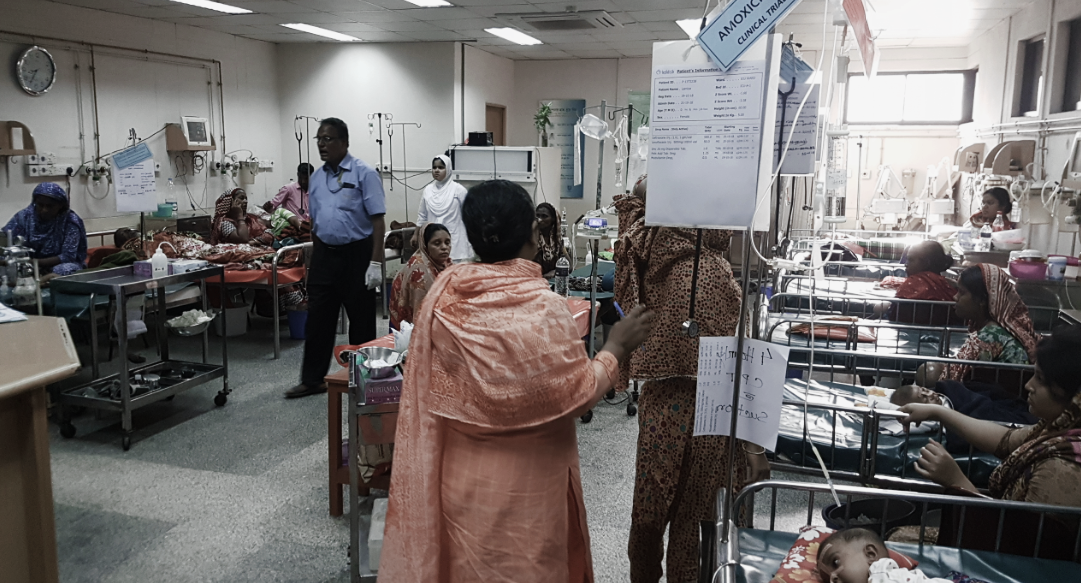
The Oral Rehydration Solution (ORS) Saline
The icddr,b developed the ORS Saline to treat symptoms of diarrhoeal disease in the 1960s which has been estimated to save tens of millions of lives worldwide. However, it was during his placement that Riashad discovered a side of the ORS he never contemplated. Despite widespread public health campaigns on the ORS which has made it a household name, many do not realise that the saline must be made properly with one sachet combined with 500ml of water, for it to not only work but also prevent potentially fatal consequences. Riashad saw multiple children in the ICU present with altered consciousness, lethargy and diarrhoea who had hypernatremia (high salt level in their blood) due to the intake of highly concentrated ORS Saline. Tragically during his placement, Riashad witnessed the death of a child due to this misunderstanding, learning first-hand the importance of education in reducing health inequity.
Riashad’s inspiration: Dr. Jobayer Chisti
Riashad had the privilege of working alongside his medical role model, Dr Jobayer Chisti.
One of the most exciting parts of each day for Riashad was being part of the ICU rounds given by Dr. Jobayer Chisti who is the Hospital’s ICU Clinical Head and Senior Scientist. Riashad explains ‘it is difficult to describe in words the inspiring aura that surrounds Dr. Chisti. I was in awe with the incredible way he interacted with patients and their families,” he says. In addition to being an excellent clinician, Dr Chisti spends much of his day conducting research, with some of his most prominent work being the Bubble CPAP which allows infants with pneumonia to breathe better and has significantly decreased mortality. Watching Dr Chisti was inspiring for Riashad and something that has motivated him to work harder to positively contribute to the most disadvantaged people across the world. “It was clear that all the other doctors under his supervision were equally dedicated to caring for patients irrespective of their income, education or socioeconomic status,” he says.
Reflecting on his placement, Riashad says “I am more passionate than ever to develop a career across both clinical practice, to maintain patient level interactions that I enjoy, as well as public health policies that impact the lives of millions of people.”
 Facebook
Facebook
Like and follow us on Facebook to keep up to date with all our student offers, events, competitions and more.
